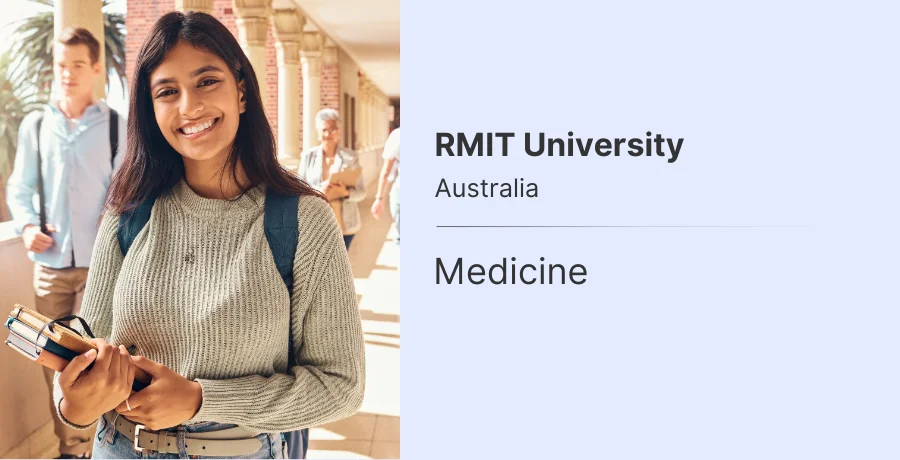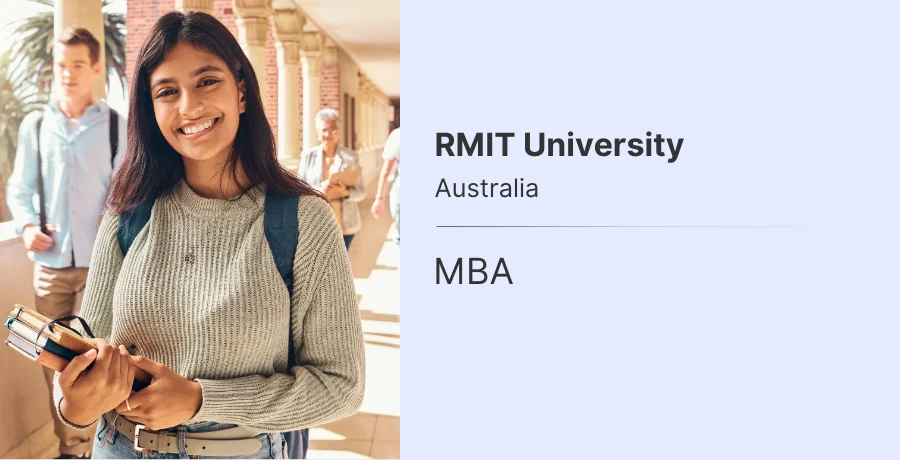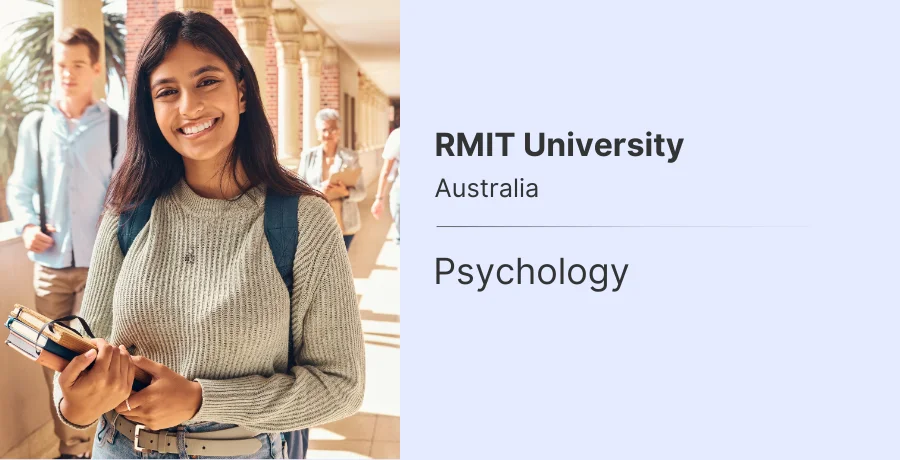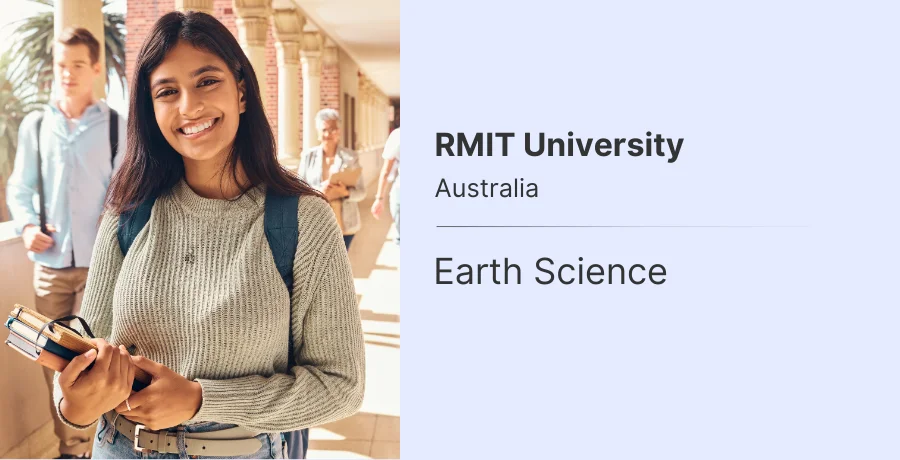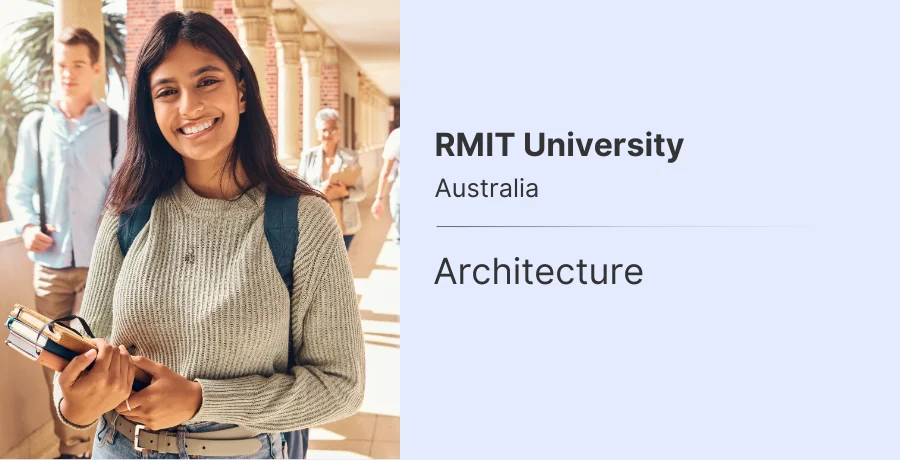Engineering at RMIT University Australia
Table of Contents
- Engineering at RMIT University Australia – Highlights
- Why Study Engineering at RMIT University Australia?
- RMIT University Rankings
- RMIT University Engineering Acceptance Rate
- Popular Engineering Courses at RMIT University Australia
- Admission Requirements to Engineering at RMIT University Australia
- Cost of Engineering at RMIT University Australia for Indian Students
- Scholarships at RMIT University Australia
- Job Prospects for Engineering in Australia
- FAQs – Engineering at RMIT University Australia
Engineering at RMIT University Australia – Highlights
Located in the vibrant city of Melbourne, RMIT University offers a dynamic and innovative engineering program that combines cutting-edge technology and research with real-world applications. Students have access to state-of-the-art facilities and are taught by industry-leading professionals who provide a comprehensive education in various engineering fields.
RMIT's engineering courses are designed to equip students with the skills and knowledge needed to tackle global challenges. The university's strong connections with industry partners ensure that students gain practical experience through internships and projects, enhancing their employability upon graduation.
Why Study Engineering at RMIT University Australia?
Studying engineering at RMIT University provides students with a blend of theoretical knowledge and practical skills. The university's focus on innovation and technology prepares graduates for the demands of the modern engineering landscape. Melbourne's multicultural environment and vibrant lifestyle also make it an attractive destination for international students.
- Strong industry connections and internship opportunities
- State-of-the-art facilities and labs
- Experienced faculty with industry expertise
- Emphasis on hands-on learning and real-world applications
RMIT University Rankings
RMIT University has consistently earned recognition for its engineering programs, both in Australia and globally. Below are the notable rankings for Engineering at RMIT University:
- QS World University Rankings by Subject: RMIT is ranked among the top 150 universities globally for Engineering and Technology. This ranking highlights the university's strong focus on research, practical learning, and innovation in engineering education.
- Times Higher Education (THE) World Rankings: RMIT's engineering programs are frequently placed in the top 200 in the world, reflecting the institution's commitment to providing high-quality technical education.
- National Rankings: Within Australia, RMIT ranks among the top 10 universities for engineering, with a strong emphasis on employability and hands-on skills development. The university's close partnerships with industry and focus on work-integrated learning are some of the reasons it ranks so highly.
| Ranking | Source |
|---|---|
| Top 100 worldwide | QS World University Rankings |
| Top 150 worldwide | US News and World Report Rankings |
| Top 200 worldwide | THE Rankings |
RMIT University Engineering Acceptance Rate
- RMIT University's engineering program has a competitive acceptance rate.
- The acceptance rate for engineering courses varies, but it generally ranges between 30-40%.
Popular Engineering Courses at RMIT University Australia
Bachelor’s Programs:
- Bachelor of Engineering (Civil): Focuses on infrastructure design and construction, preparing students for roles in civil engineering projects.
- Bachelor of Engineering (Electrical): Covers electrical systems and electronics, equipping students with knowledge in power generation and distribution.
- Bachelor of Engineering (Mechanical): Emphasizes mechanics and materials, training students for careers in manufacturing and mechanical design.
Master’s Programs:
- Master of Engineering (Civil): Advanced studies in civil engineering, focusing on complex projects and management skills.
- Master of Engineering (Electrical): In-depth exploration of electrical engineering principles and their applications in modern technology.
- Master of Engineering (Mechanical): Specializes in advanced mechanical engineering concepts and innovative design techniques.
Engineering at RMIT University Requirements
Admission to engineering programs at RMIT University requires a strong academic background and meeting specific entry criteria.
-
Educational Qualifications:
- Undergraduate Programs: Completion of Australian Year 12 or an international equivalent. A strong background in Mathematics and Physics is typically required.
- Postgraduate Programs: A bachelor’s degree in engineering or a related field from a recognized institution is mandatory.
-
Prerequisite Subjects:
- For undergraduate programs, successful completion of Mathematics and Physics at the high school level is essential.
- For specific postgraduate engineering courses, relevant prior knowledge in specialized engineering subjects may be required.
-
English Language Proficiency:
- IELTS (Academic): Overall band score of 6.5, with no individual band less than 6.0.
- TOEFL (IBT): Minimum score of 79, with at least 13 in Reading, 12 in Listening, 18 in Speaking, and 21 in Writing.
- PTE Academic: Minimum score of 58, with no communicative skill score less than 50.
-
Additional Documents:
- A personal statement outlining your interest in engineering.
- For postgraduate applications, letters of recommendation from academic or professional referees may also be required.
Eligibility Criteria:
Applicants must have completed secondary education with strong grades in relevant subjects such as mathematics and science. Additionally, international students may need to provide proof of English language proficiency.
Meeting the eligibility criteria is just the first step; prospective students should also demonstrate their passion for engineering through personal statements and recommendation letters.
Documents Required:
- Academic transcripts
- Proof of English language proficiency (e.g., IELTS, TOEFL)
- Personal statement
- Letters of recommendation
Proficiency Test:
International students are required to take proficiency tests like IELTS or TOEFL to demonstrate their English language skills. These tests ensure that students can effectively participate in coursework and communicate in an academic setting.
Visa Process:
- Apply for a student visa through the Australian Department of Home Affairs.
- Provide Confirmation of Enrollment (CoE) from RMIT University.
- Submit proof of sufficient financial resources.
- Undergo a medical examination if required.
Engineering at RMIT University Fees in Australia for Indian Students
The fees for studying engineering at RMIT University depend on the program level and student residency:
- Undergraduate Fees (International Students): The annual tuition fees for undergraduate engineering programs are approximately AUD 39,000 to AUD 42,000 per year.
- Postgraduate Fees (International Students): For a Master of Engineering or other postgraduate engineering courses, fees range between AUD 40,000 and AUD 45,000 per year.
- Domestic Students: Domestic students benefit from Commonwealth Supported Places (CSP), which reduces the annual fee significantly, with costs typically between AUD 8,000 and AUD 10,000.
Cost of Living:
The cost of living in Melbourne is approximately AUD 20,000 to AUD 25,000 per year, covering accommodation, food, transportation, and other personal expenses.
| Expense | Cost (AUD/year) |
|---|---|
| Tuition Fees | 30,000 - 40,000 |
| Cost of Living | 20,000 - 25,000 |
Scholarships at RMIT University Australia
RMIT University offers various scholarships to support international students pursuing engineering degrees.
- RMIT International Excellence Scholarship: Awarded to high-achieving students, covering a portion of the tuition fees.
- Australia Awards Scholarship: Funded by the Australian government, this scholarship supports students from developing countries.
Job Prospects for Engineering in Australia
Engineering graduates from RMIT University have excellent job prospects in Australia, with opportunities in various industries such as construction, technology, and manufacturing.
| Job Title | Average Salary (AUD) |
|---|---|
| Civil Engineer | 70,000 - 100,000 |
| Electrical Engineer | 75,000 - 105,000 |
| Mechanical Engineer | 70,000 - 95,000 |
FAQs – Engineering at RMIT University Australia
- Q1: Can I work while studying engineering at RMIT University?
A1: Yes, international students are allowed to work part-time while studying. This helps in gaining practical experience and managing living expenses. - Q2: What are the advantages of studying engineering at RMIT University?
A2: RMIT offers strong industry connections, state-of-the-art facilities, and a curriculum that emphasizes hands-on learning, making graduates highly employable. - Q3: What is the average salary for an engineering graduate from RMIT University?
A3: The average salary for engineering graduates ranges from AUD 70,000 to AUD 105,000, depending on the specific field and level of experience. - Q4: How long is the engineering program at RMIT University?
A4: The duration of the bachelor's programs is typically 4 years, while master's programs can range from 1.5 to 2 years. - Q5: What exams are required for admission to RMIT University’s engineering programs?
A5: International students may need to take proficiency tests like IELTS or TOEFL to demonstrate their English language skills. Additionally, meeting specific academic requirements is essential. - Q6: What are the popular engineering courses at RMIT University Australia?
A6: Popular courses include Bachelor of Engineering in Civil, Electrical, and Mechanical, as well as Master of Engineering in these specializations.



